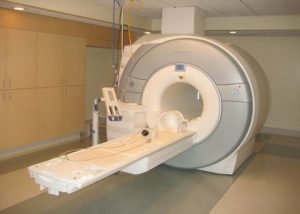- Home
- Editorial
- News
- Practice Guidelines
- Anesthesiology Guidelines
- Cancer Guidelines
- Cardiac Sciences Guidelines
- Critical Care Guidelines
- Dentistry Guidelines
- Dermatology Guidelines
- Diabetes and Endo Guidelines
- Diagnostics Guidelines
- ENT Guidelines
- Featured Practice Guidelines
- Gastroenterology Guidelines
- Geriatrics Guidelines
- Medicine Guidelines
- Nephrology Guidelines
- Neurosciences Guidelines
- Obs and Gynae Guidelines
- Ophthalmology Guidelines
- Orthopaedics Guidelines
- Paediatrics Guidelines
- Psychiatry Guidelines
- Pulmonology Guidelines
- Radiology Guidelines
- Surgery Guidelines
- Urology Guidelines
Full MRI scan can now be performed in little over a minute

Breakthrough- Full MRI scan can now be performed in little over a minute, thanks to Swedish scientists.
A magnetic resonance imaging (MRI) scan is a common imaging procedure that uses a strong magnetic field and radio waves to create detailed images of the organs and tissues within the body.The development of MRI revolutionized medicine and since its invention, doctors and researchers continue to refine MRI techniques to assist in medical procedures and research.
MRIs are used as a form of noninvasive imaging technology, allowing doctors to see what’s going on inside your body without having to cut you up to do so. MRI scanner relies on a large magnet and radio waves to record images of organs within the body while requiring the subjects to lay still during the procedure.
The researchers Tim Sprenger and Stefan Skare have developed 5,000 lines of code and combined Echo-Planar Imaging (EPI) and MRI scans into one method (EPI-mix). This development has cut the time it takes to perform a full MRI scan to a little over a minute.
Also Read: First-ever MRI waistcoat shall improve breast cancer screening
A traditional MRI scan requires different types of imaging. The procedure requires the patient to be still for about seven minutes for each image, with the entire process taking about 30 minutes to an hour. With EPI-mix technology, the scientists created a method to cut down the time to complete a full MRI scan to 70 seconds. In 2018, Skare and his team successfully demonstrated a 70-second brain scan on a moving subject using the process, with the results syncing up well with traditional MRI scans. To demonstrate the technique’s efficiency, Skare has released a video showing 30 patients receiving multiple scans in under an hour.
Although the results are slightly unclear when compared to full-fledged MRI scans, they can be utilized by doctors for early detection and diagnosis, said Anna Falk Delgado, a radiology expert.
Also Read: MRI can predict risk of Stroke, Dementia, Death in Elderly

Disclaimer: This site is primarily intended for healthcare professionals. Any content/information on this website does not replace the advice of medical and/or health professionals and should not be construed as medical/diagnostic advice/endorsement or prescription. Use of this site is subject to our terms of use, privacy policy, advertisement policy. © 2020 Minerva Medical Treatment Pvt Ltd